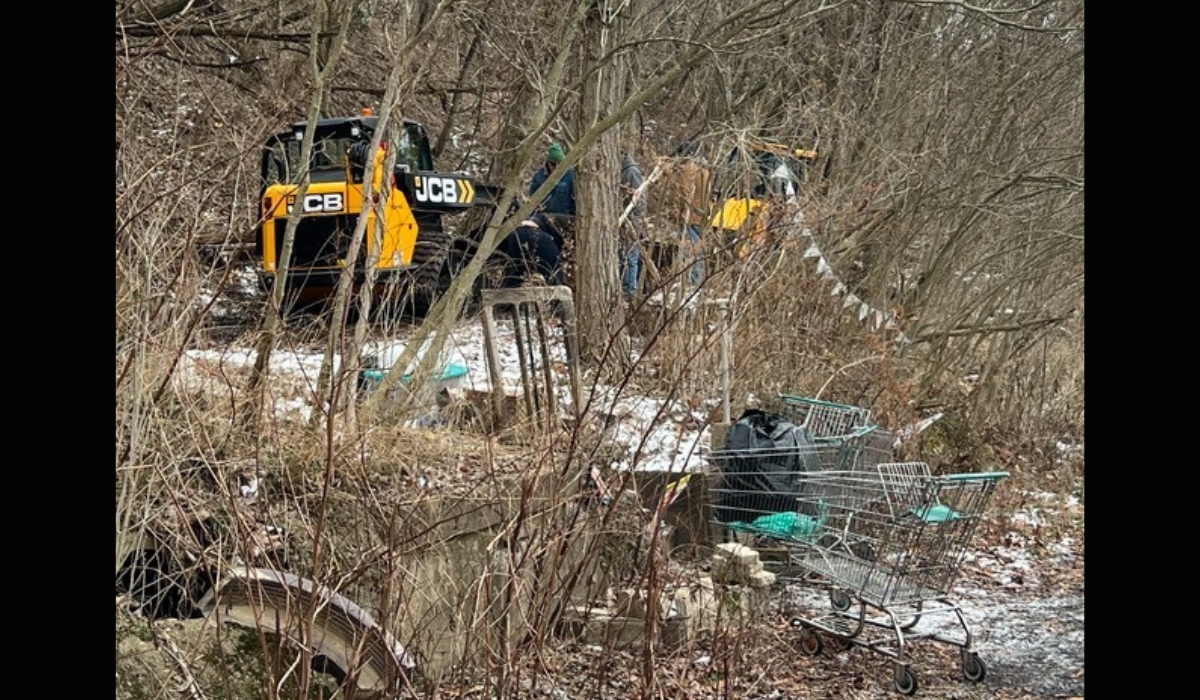The City of Wheeling has cleared its first urban campsite under a new ordinance that went into effect earlier this month.
Exemptions to Wheeling’s new public camping ban were discussed at Tuesday’s city council meeting, but there was no exemption for one encampment of unhoused people.
Thursday morning, around seven people camping behind the Nelson Jordan Center were given a two-hour notice to vacate the premises.
Dr. William Mercer provides medical services to Wheeling citizens experiencing homelessness with Project Hope. He was present for the city’s clearing.
“They had two bulldozers, two big trucks, 10 city employees and police,” he said.
Despite the city giving notice of the intent to clear the camp last week, Mercer said the clearing caught the community unaware.
“One guy…was at work this morning,” he said. “His friend Terry had to go get him from work and bring him back so he could start packing his stuff up in bags.”
It was unclear where the displaced will spend the night.
“I think they were going to be able to maybe try to stay with somebody tonight and store some of their stuff in a friend’s garage,” Mercer said. “They didn’t have a whole lot.”
Wheeling is under a winter weather advisory, and Gov. Jim Justice has declared a state of emergency ahead of a storm Friday.
Citing pending litigation, a representative for the Wheeling city manager declined to comment.
The American Civil Liberties Union of West Virginia filed suit against the city in the Northern District of West Virginia Tuesday evening, Jan. 16. They are seeking an injunction against the camping ban ordinance, as well as declaratory relief, asking the court to find that the ban and forced removals are an unconstitutional practice.
Thursday morning ACLU WV filed an emergency request for a temporary restraining order against the City of Wheeling to stop the city from bulldozing tent encampments belonging to unhoused people. No such order was granted before the city took action.
In a press release, ACLU-WV Legal Director Aubrey Sparks called Wheeling “a bad-faith actor.”
“The city ignored requests to talk about exemptions to the habitation ban for months, created a new process out of thin air this week, and then destroyed people’s shelters anyway,” she said.
